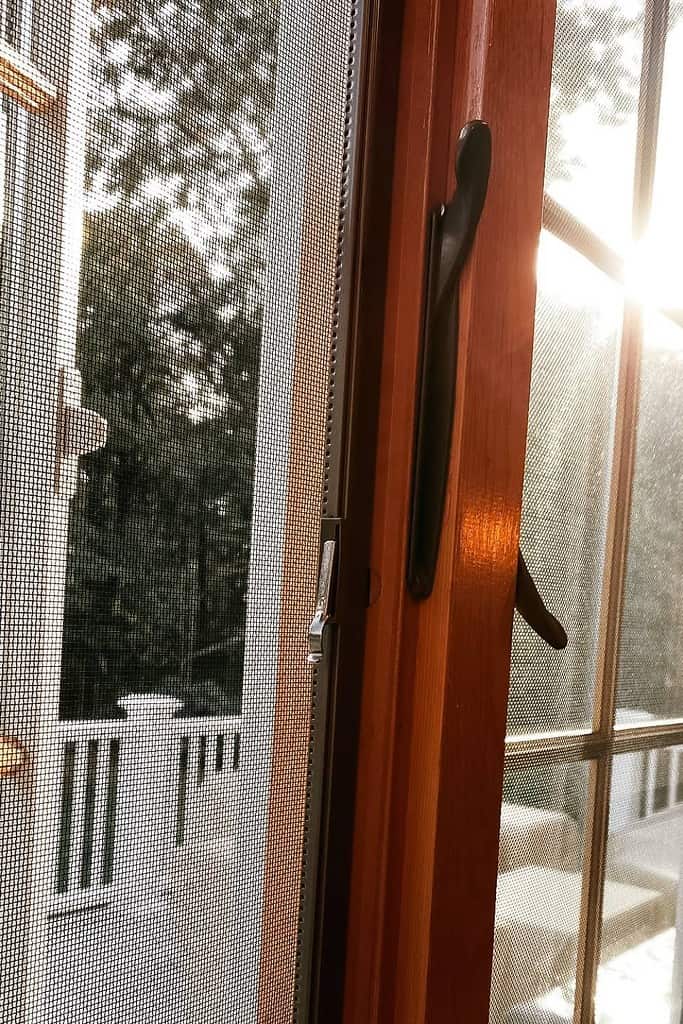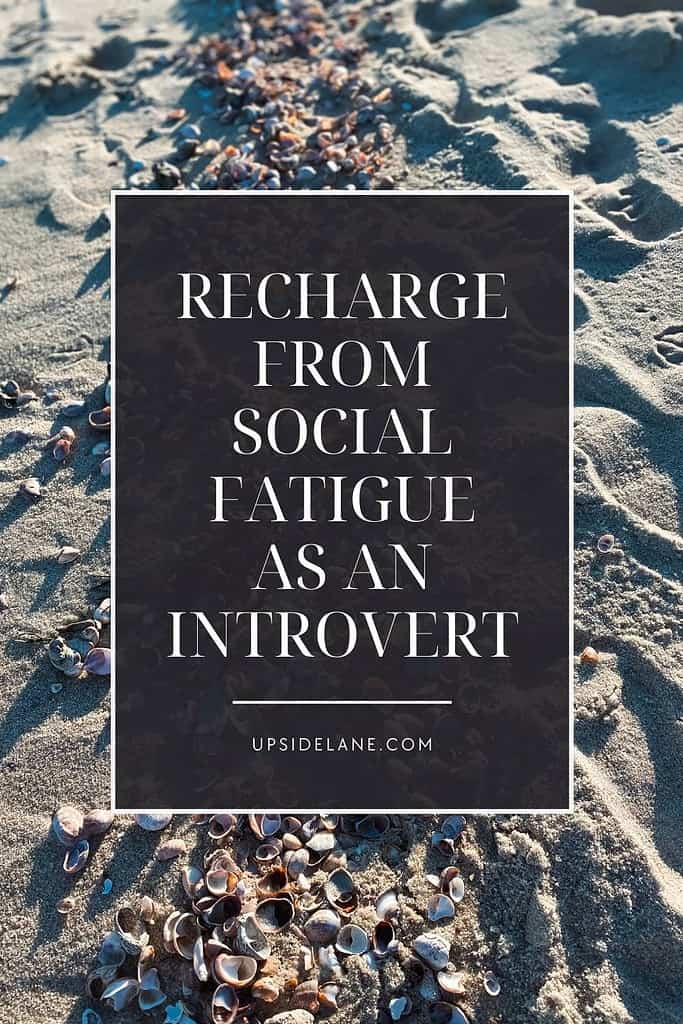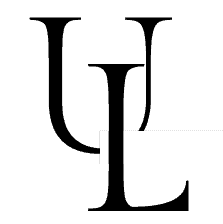Social Fatigue? How To Recharge As An Introvert
Navigate social fatigue with practical insights and tips on how to recharge as an introvert. Recognize signs of exhaustion, establish boundaries, and celebrate the strengths of introversion for a balanced and fulfilling life.

It took a long time for me to understand that I needed to learn how to recharge as an introvert. Actually, for many years I didn’t even realize that I was an introvert.
I enjoyed alone time, doing solo activities like reading, crocheting, and journaling but I also was very active in my career as a professional dancer and then an oncology nurse. The hard work and long work days, although tiring, also felt invigorating and fulfilling.
When my children were young, we were involved in many different activities and social situations. From a variety of sporting events to recitals, clubs, dances, fundraisers, and more.
What does it mean to be an introvert?
I have since come to understand however that being an introvert does not mean you don’t ever step out of your comfort zone or put yourself in social settings that could drain your social battery.
All it means is that your personality trait may require you to need a bit more time to recover from one of these highly energetic social activities.
You may enjoy the boisterous energy levels or external stimuli of a lot of people at fun social events and even have a great time, but when it’s time to go home, it is TIME TO GO HOME.
Introverts get their social batteries recharged from more internal stimuli such as solitude, and reading. Whereas an extroverted person gets filled up by external stimuli such as team sports and volunteering.

The toll of social fatigue as an introvert
Social fatigue can take a considerable toll on the health of an introvert if they are not mindful and aware to avoid overextending themselves.
Here are examples of the impact social fatigue can have on introverts.
Recognizing the toll of social fatigue is important for an introvert. In this way, they can prevent fatigue and social anxiety before it gets out of hand.
An introvert must prioritize self-care, set boundaries, and implement strategies to recharge effectively in order to prevent social fatigue and foster a more healthy sustainable balance between social interactions and personal well-being.
Signs and symptoms of social fatigue
The signs and symptoms of social fatigue can creep up on you slowly, or they can feel like they’ve hit you all at once. That is why it is important to be aware, just in case things start changing for you emotionally, mentally, or physically.
Here are some general signs and symptoms you may experience when experiencing social fatigue.
NOTE: If any of these symptoms continue, even after you have taken steps to recover from social fatigue, please consider talking to a mental health professional for help.
An introvert’s personal recharge toolkit
Being an introvert is not necessarily a bad thing but we do need to be mindful of our limits and recharge when necessary.
Here are different ways to learn how to recharge as an introvert. Think of it as your own Personal Recharge Toolkit, an introvert’s guide.
Solitude
This is the introvert’s sanctuary. Make sure to set aside some quiet time in a peaceful environment whenever you are feeling anxious, overwhelmed, or overstimulated.
As a busy caregiver, I make it a priority to set aside some personal time after a long day. It doesn’t have to be long but it should be focused and without distractions. No phone calls or social media are allowed. 😉

Connection
Being an introvert does not mean we do not need social connections. We just need more time to recover from energetic social interactions.
Make sure your social connections are all about quality and not quantity. A few close friends, or one best friend, versus a large group will do wonders.
Working remotely as a Lifestyle Medicine Nurse, and also being a caregiver for Doug who has Parkinson’s, sometimes my social connections are limited.
Most of the time this is okay. I consider myself a busy introvert, and I don’t mind my daily routine, or working from home.
But I do need to be careful to foster the social connections that I do have, especially when I am feeling the stress build. It is important to be mindful of my mental and emotional health.
Solo activities
One of the best ways to recharge is to get absorbed in a fun hobby. Here are some ideas to think about.
knitting, crocheting, sewing
These are some of my favorite hobbies. Sitting down with a nice hot cup of tea, and working with soft beautiful yarn to make something for a friend, or for my new grandbaby, is a fun way for me to relax.
The rhythmic nature of using a hook and yarn, and making all of the various stitches, is calming and meditative. I highly recommend this activity!
cooking, baking
Okay, for those of you who know me, baking is my absolute favorite way to relax. If I am feeling anxious or overly charged, baking something delicious and satisfying brings me right back to my center.
reading a good book
Better yet, reading a book in a quiet space with a beautiful hot drink. I have always been a reader. It started out with Little House on the Prairie and Nancy Drew books, and now I will read just about anything.
But if I am feeling social fatigue, reading a book that requires a lot of thought can be overstimulating. What works for me is a nice romantic relationship novel. Yes, I am that girl.
creative writing, journaling, crossword puzzles, etc.
Writing is another way to get the mental chaos out of your head and onto the page. Journaling is one of my favorites, and I have a prayer journal that I write in every morning.
gardening
Now I wish I were a gardener but sadly I am not, and gardening does not relax me personally. I know, however, that there are many people who absolutely love to garden when they are feeling anxious or stressed. I am going to continue to try to hone my gardening skills but at this point in time, for me, it feels like work not a form of relaxation.
arts and crafts
There are so many arts and crafts that people find relaxing. I love to make essential oil blends and, although not necessarily a craft, I really enjoy doing puzzles. During the holiday season, it seems I always have some sort of puzzle going.

Physical activity
Doing any sort of physical activity is a wonderful way to get the jitters and anxiety out of your body. It increases blood flow and it is believed that physical activity releases neurotransmitters like dopamine and serotonin, which can improve mood.
Personally, I love spending time in nature. For me, going on a long walk along the shores of Cape Cod, taking deep breaths, and breathing in the fresh air, is the perfect quick recharge.
Some people like running, walking, hiking, or classes. Whichever kind of physical activity you enjoy, getting your body moving is a great way to calm the nerves.
Establish boundaries
It takes time to figure out what your boundaries are before you can even begin enforcing them but taking the time, and courage, to do so will save you much stress down the road.
When I was younger I was much more of a people pleaser than I am now. I cared about what people thought way more than I should have.
But as you get older, things shift, and priorities become more clear. You begin to not sweat the small stuff, and you also have less tolerance for drama and disruption in your life.
May I recommend to really think about boundaries when it comes to friends, family, work, and all areas of your life, and then find the strength and courage to enforce them.
It does get easier with time, and you will soon find out that establishing boundaries, and learning how to effectively communicate with others, is a game changer.

The power of being an introvert
Being an introvert is not a negative, in fact, it can be a good thing. Introverts possess a multitude of positive and empowering traits that contribute to their unique strengths and abilities.
Here are 8 positive and powerful traits associated with being an introvert.
- Empathetic – introverts tend to be excellent listeners and observers, which helps them to be empathetic and attuned to the emotional needs of others.
- Loyal – introverts value loyalty and are often deeply committed in their relationships, be it with family members, friends, or co-workers. This loyalty contributes to others placing their trust in them.
- Integrity – introverts often hold strong personal values and beliefs, and their commitment to authenticity and integrity is reflected in their actions and interactions with others.
- Strong Focus – introverts can show a high level of concentration and focus, which makes them well-suited for tasks that require attention to detail and analytical thinking. Introverts thrive in environments that allow them to work independently.
- Strong Leadership – introverts can be strong and effective leaders, as they tend to lead with a calm and focused demeanor. They excel in leading by example, listening to their team, and making thoughtful decisions.
- Creative – many introverts have a rich inner world and a strong imagination. This creativity often leads to unique perspectives, innovative ideas, and the ability to think outside the box.
- Self-Sufficient – introverts are comfortable with solitude and self-reflection, which fosters self-sufficiency. This independence enables them to pursue personal goals, work autonomously, and navigate challenges on their own.
- Analytical Skills – introverts tend to excel in analytical thinking and problem-solving. Their thoughtful and methodical approach allows them to analyze situations comprehensively and make informed decisions.
How to recharge as an introvert
In order to recharge as an introvert, the most important thing is to prioritize self-care, and not wait until we feel completely depleted. Prioritizing self-care will help us maintain our mental, physical, and emotional well-being.
As individuals who often expend much energy in social situations, taking the time for solitude and for activities that recharge is crucial to prevent social fatigue, and foster a healthy balance.
By respecting the need for self-care, and not feeling bad about it, introverts optimize their strengths, enhance resilience, and navigate the demands of a social world with greater ease and fulfillment.
Understanding, accepting, and embracing the unique needs of one’s introverted nature in a social world, and taking steps to recharge as necessary, will ultimately create a harmonious balance between our own personal preferences and societal expectations.
And to me, that sounds like a win-win.
Check out these additional posts for caregiver support
Let’s Connect
If you enjoyed this article I would love for you to share it with friends and family members, or anyone you think might benefit from reading it.
Please let me know your thoughts in the comment section below. I’d love to hear from you.



